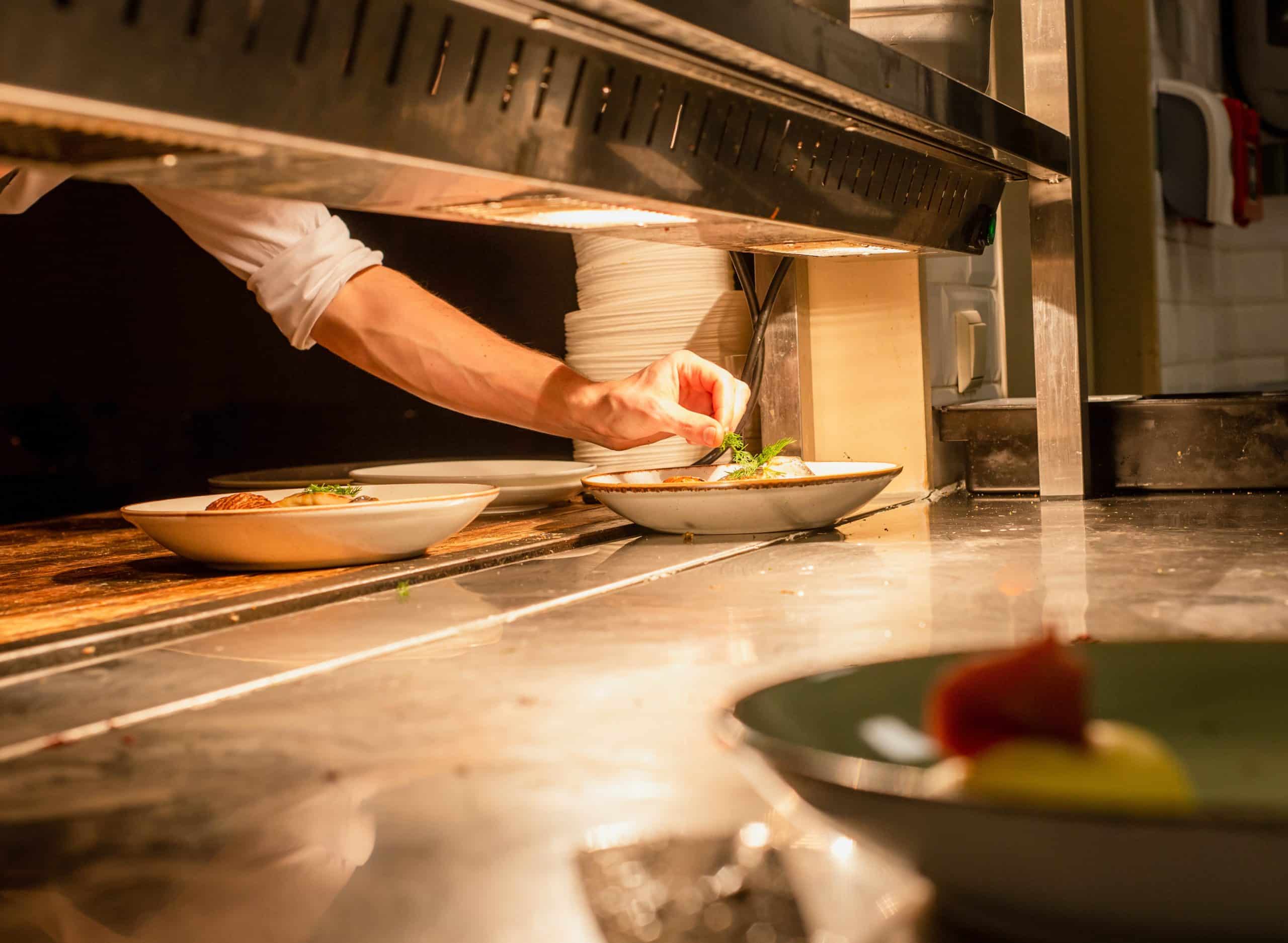If a restaurant has a deep-fat fryer, the oil used to fry will become full of burnt particulates that give the oil a burnt taste. As a result, cooking oil used in commercial fryers needs to be changed between once to twice a week depending on the items that are being fried.
As a result, restaurants produce a large quantity of used cooking oil. An industry-standard tabletop fryer holds 10 litres of oil. Using our estimates from earlier, small to medium-sized businesses can use 20 litres of oil per week. This is a conservative estimate, of course, many restaurants use a great deal more oil at much quicker rates. This has caused environmental concerns as improper disposal of oil can cause harm to waterways.
So what do restaurants do with used cooking oil? Restaurants often store their used cooking oil in refuse areas in large blue drums. These drums get collected by companies across the UK to dispose of them through various methods.
However, there is a new wave of eco-friendly waste collection methods which use ecological methods in processing used oils. Biodiesel is the end product of these methods. These companies will therefore offer free collection or even pay for restaurants to collect their waste products.
Find out more with BioUKFuels, an industry leader in the field of used oil collection and biodiesel production.
But first, let’s review the UK oil waste regulations to see why oil collection is regulated.
What Are The UK Waste Oil Regulations?
The UK Waste Oil Regulations, issued by The Department of Environment, Food and Rural Affairs say that a restaurant that produces waste oil must dispose of it in a manner that doesn’t pose environmental harm. These regulations came into place due to some restaurateurs disposing of waste oil themselves which pollutes groundwater and blocks underground waterways.
The Food Standard Agency notes that disposing of waste oil by pouring it into the sink or drains causes clogs, sometimes known as ‘fatbergs’ when they join together in sewer systems of larger conurbations. Not only is pouring used oil into drains strongly advised against for UK households, but it is also illegal for businesses to do so.
Due to these restrictions on waste oil as a contaminant, used oil collection needs to be handled by dedicated collection agencies that issue collection notes. These collection notes will be reviewed by a Food Standard Agency Inspector should they suspect you are wrongfully disposing of your used oil. BioUKFuels offers collection notes with every collection.
Who Can Collect Waste Oil?
There are three options for used oil disposal in the UK. Let’s review each to see how the amount disposed of differs between services and how each can have a positive effect on the environment.
How To Dispose Of Oil At Home
For insignificant amounts, like dripping from bacon or butter from a roasting pan, make sure to soak up the excess once it has cooled with a small amount of kitchen roll. Leave the sheet to soak up all oil and dispose of it as you would anything else. This is a great way to significantly reduce the amount of oil that enters the UK sewage system.
Check out a service offered by your local authority for household oil disposal.
Used Oil Collections Where The Customer Pays
Some oil collection agencies charge the customer for oil collection.
Before advancements were made in used oil refineries, allowing collectors the ability to turn used oil into biodiesel, agencies charged the customer a fee to pick up their waste oil. This is because oil was seen as a valueless waste product, much like general waste.
Used Oil Collections Where The Collection Agency Pays
Modern methods have allowed used oil the ability to be turned into biodiesel through refinement and filtration methods. This allows agencies such as BioUKFuels the ability to pay the customer for their used oil, unless the oil collected is under 100l, in which case the service is free.
How Can Cooking Oil Be Used As Fuel?
Using modern methods of filtration and refinement, you can produce clean biodiesel using used oil in the UK. So what does this mean for restaurants?
Environmentally friendly oil collection turns used oil into biodiesel via a process called ‘transesterification’. This process has some waste products, most notably glycerin and glycerol. However, this waste product only accounts for 10% of the total volume of oil collected. Translated into plain English, biodiesel production yields little waste, and is a great way to help move forward with diesel combustion engines into a greener future.
Find out more about What Happens To Used Cooking Oil Once It Has Been Recycled by checking out our other article on the matter.
Biodiesel With BioUKFuels
BioUKFuels can collect from any location in England and is one of the very few companies offering to either collect your commercial used oil for free, but also offer you a fee if the collection is for an amount over 100L.
Asking for collections over 100L is great for 2 reasons.
- You can start getting paid a competitive rate for your used oil
- Less unnecessary journeys for our biofuel-powered vans
Contact us at BioUKFuels to see how we can work together to lead the change in how used oil is collected and reused for environmentally friendly purposes. For any other questions that you might have about our processes, check out our Frequently Asked Questions page where we cover other aspects of our service in greater detail.


